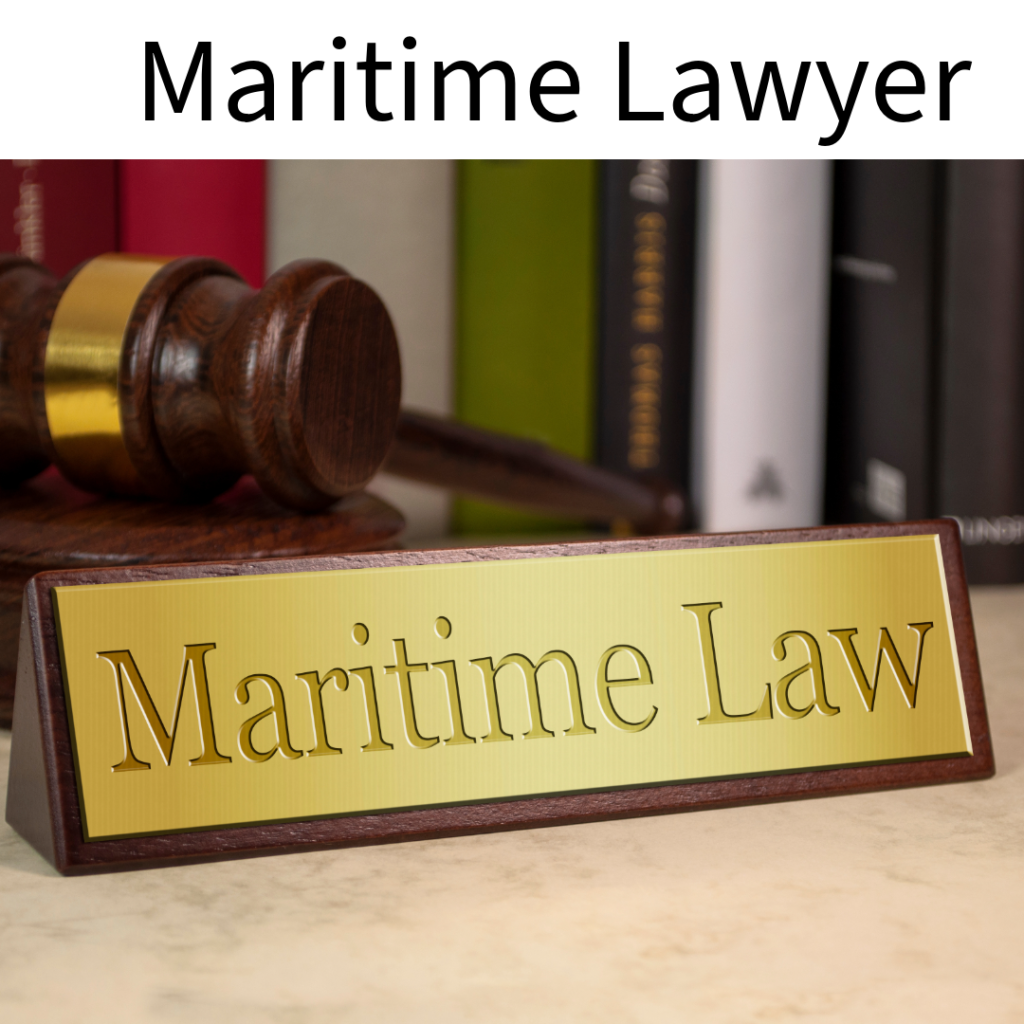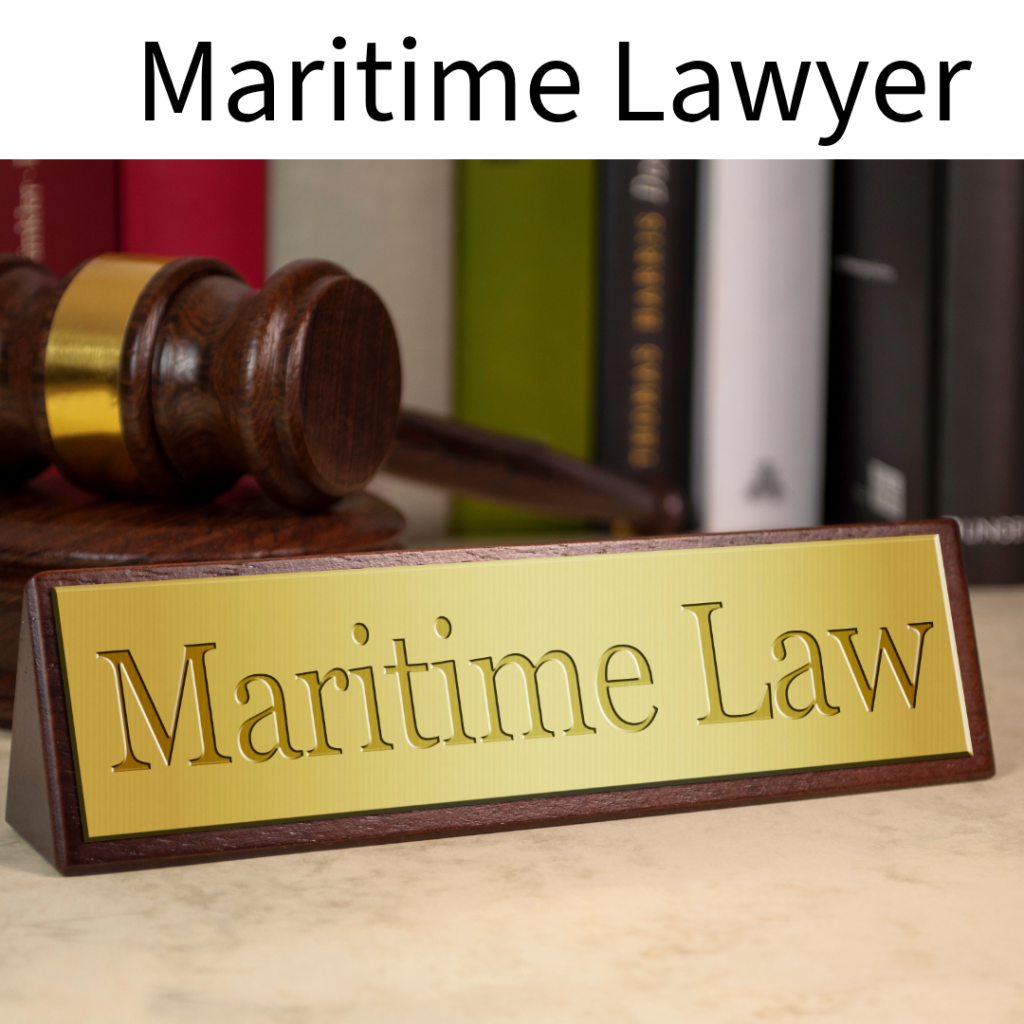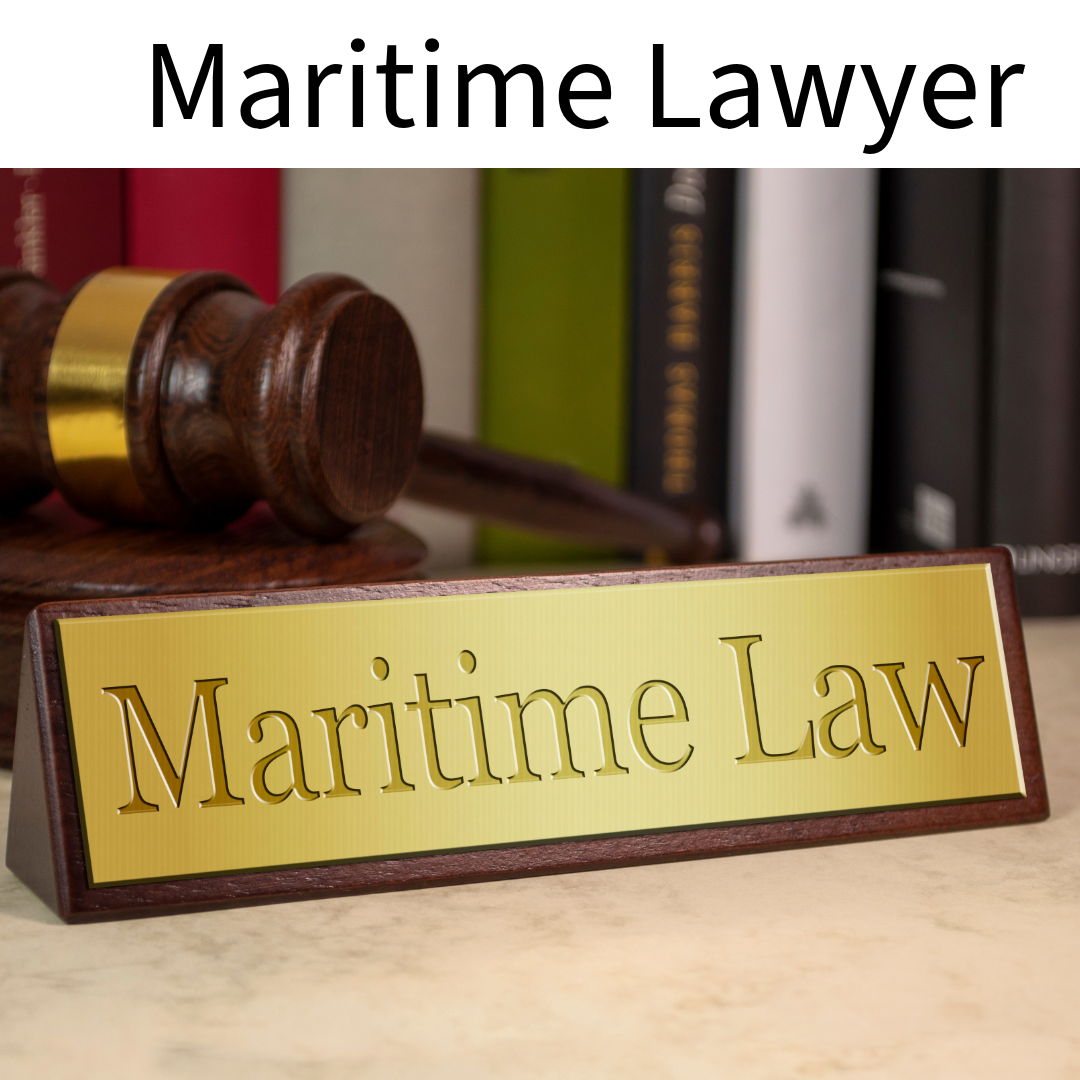Maritime Lawyer: Maritime law is a complex and multifaceted legal domain that deals with various issues related to navigation, shipping, and the high seas. So At the heart of this intricate legal landscape are maritime lawyers, professionals adept at steering through the complexities of maritime disputes and ensuring justice for their clients.
Maritime Lawyer:

Understanding of a Maritime Law
Maritime law, often referred to as admiralty law, is a specialized legal field governing activities on the high seas, navigable waters, and international waterways. This intricate and nuanced legal framework addresses a wide range of issues related to shipping, navigation, and marine activities. So In this article, we will delve into the essentials of maritime law, exploring its key aspects, the role of maritime lawyers, and the significance of this legal domain.
Maritime law encompasses a set of rules and regulations governing various aspects of maritime activities. These activities include shipping, navigation, marine commerce, and the rights and responsibilities of those involved in maritime ventures.
The roots of maritime law can be traced back centuries, evolving alongside the expansion of maritime trade and exploration. But Over time, international agreements and conventions have shaped the principles that underpin modern maritime law.
Key Components of Maritime Law
Maritime law sets out regulations to ensure the safe and efficient navigation of vessels. This includes rules for navigation lights, sound signals, and the right of way, among others.
The legal framework of maritime law extends to commercial activities such as shipping contracts, carriage of goods, and charter parties. So It governs the relationships and obligations of parties involved in maritime commerce.
Given the global impact of marine activities on the environment, maritime law includes provisions for environmental protection. So It addresses issues like pollution, oil spills, and the conservation of marine resources.
The Role of Maritime Lawyers
The Role of Maritime lawyers are legal professionals with specialized knowledge in maritime law. They provide legal representation and counsel to individuals, businesses, and organizations involved in maritime disputes.
lawyers handle a diverse range of cases, including personal injury claims resulting from maritime accidents, disputes over damaged or lost cargo, and cases involving environmental violations at sea.
Importance of Maritime Lawyers
The Maritime lawyers, also known as admiralty lawyers, are legal professionals with specialized expertise in the complex and dynamic field of maritime law. Their role is indispensable in safeguarding the rights and interests of individuals, businesses, and organizations involved in maritime activities. So In this article, we will explore the significance and importance of maritime lawyers, shedding light on their multifaceted contributions to the legal landscape.
Navigating the Legal Waters
The core responsibility of maritime lawyers lies in interpreting and applying maritime laws and regulations. So With a deep understanding of the intricate legal framework governing maritime activities, these lawyers provide invaluable insights to their clients.
Maritime activities are subject to a plethora of regulations. So Maritime lawyers play a pivotal role in ensuring that their clients adhere to these regulations, preventing legal complications and potential liabilities.
Protection in Maritime Disputes
lawyers specialize in handling personal injury claims arising from accidents at sea. Whether it’s a crew member injured during maritime operations or passengers harmed in an accident, these lawyers advocate for the rights of the injured parties.
In cases of damaged or lost cargo during shipping, maritime lawyers step in to resolve disputes. So They navigate the complexities of maritime commerce, working towards fair resolutions that consider the interests of all parties involved.
As environmental concerns gain prominence, maritime lawyers address cases related to environmental violations at sea. So They pursue legal action against entities responsible for maritime pollution, ensuring accountability and environmental protection.
Qualifications and Expertise
Qualifications and Expertise of Maritime lawyers typically have a strong legal background, often with specialized education in maritime law. So This foundation equips them with the knowledge required to address the unique challenges posed by cases in this field.
In addition to a general legal education, maritime lawyers acquire specialized knowledge in maritime law. So This includes understanding international maritime regulations, shipping laws, and environmental considerations that may arise in maritime disputes.
Types of Maritime Cases
Maritime law, a multifaceted legal domain governing activities on the high seas, brings forth a diverse array of cases. So From personal injury claims to environmental disputes, maritime lawyers navigate the complexities of these cases to ensure justice and fair resolutions. So In this article, we will delve into the various types of maritime cases, shedding light on the intricacies and legal considerations involved.
1. Personal Injury Claims
lawyers often handle cases involving accidents at sea, such as collisions between vessels, slips, and falls onboard, or injuries resulting from maritime operations. So These cases demand a thorough understanding of maritime safety regulations and liability issues.
In situations where passengers suffer injuries during maritime activities, maritime lawyers play a crucial role in advocating for their rights. So This includes incidents on cruise ships, ferries, or other passenger vessels.
2. Cargo Disputes
Cargo disputes are prevalent in maritime law, encompassing cases where shipped goods are damaged or lost during transportation. So Maritime lawyers work to resolve these disputes, ensuring fair compensation for all parties involved.
Disputes may arise between parties involved in charter parties, which are contracts governing the use of a vessel for the transportation of goods. So Maritime lawyers navigate these disagreements to reach equitable resolutions.
3. Environmental Violations
Cases related to marine pollution involve legal action against entities responsible for environmental violations at sea. Maritime lawyers advocate for environmental protection, seeking accountability for pollution incidents.
Maritime law includes provisions for the conservation of marine resources. So Cases involving violations of these conservation laws require the expertise of maritime lawyers to address legal complexities.
4. Salvage Operations
Salvage operations involve the recovery of ships, cargo, or other property in distress. So Disputes may arise over salvage rights and compensation, requiring maritime lawyers to navigate intricate legal issues.
Cases involving towage agreements, where one vessel tows another, can result in legal disputes. Maritime lawyers assist in resolving disagreements and ensuring adherence to towage contracts.
5. Maritime Insurance Claims
Maritime insurance plays a crucial role in mitigating risks. So Maritime lawyers handle insurance claims related to damaged or lost cargo, ensuring clients receive rightful compensation from insurance providers.
Liability insurance is essential in maritime activities. Maritime lawyers assist clients in filing and resolving claims related to liability coverage, addressing issues such as personal injury or property damage.
6. Cruise Ship Incidents
Cruise ship incidents involve a range of legal issues, including personal injuries, illnesses, or even outbreaks of diseases onboard. Maritime lawyers advocate for the rights of passengers affected by these incidents.
Disputes may arise between cruise ship operators and passengers over contractual obligations. So Maritime lawyers work to resolve these issues and ensure fair treatment for passengers.
7. Maritime Criminal Offenses
Maritime law encompasses criminal offenses such as smuggling and human trafficking. Maritime lawyers play a role in representing parties involved in legal proceedings related to these offenses.
Although rare, piracy cases fall within the purview of maritime law. Maritime lawyers handle legal proceedings related to piracy, ensuring fair trials for those accused and justice for victims.
Legal Procedures in Maritime Cases
When a maritime dispute arises, the first step is often filing a lawsuit. Maritime lawyers guide their clients through the process, ensuring that all legal requirements are met.
Collecting evidence is crucial in maritime cases. Lawyers work to gather relevant information, including witness testimonies, expert opinions, and documentation, to build a strong case for their clients.
Many maritime cases are resolved through settlement negotiations. Maritime lawyers use their negotiation skills to reach fair and favorable settlements for their clients without the need for lengthy court battles.
In cases where settlements cannot be reached, maritime lawyers are prepared to represent their clients in court. They navigate the legal proceedings, presenting evidence and arguments to support their clients’ claims.
Notable Maritime Legal Cases
The history of maritime law is marked by several notable cases that have shaped the legal landscape. Examining these cases provides insights into the evolution of maritime law and its impact on current legal practices.
Landmark decisions in maritime law set precedents for future cases. Maritime lawyers often refer to these decisions to build compelling arguments and strengthen their clients’ positions in legal disputes.
Challenges in Maritime Law
One of the significant challenges in maritime law is determining jurisdiction, especially in cases involving international waters. Maritime lawyers must navigate the complexities of overlapping jurisdictions and international regulations.
Maritime law is governed by a myriad of regulations and conventions. Navigating through these complex legal frameworks requires in-depth knowledge and expertise, making maritime lawyers an indispensable resource.
Advantages of Hiring a Maritime Lawyer
Maritime lawyers bring a wealth of legal expertise to the table. Their specialized knowledge in maritime law ensures that clients receive the best possible representation in maritime legal matters.
In cases of personal injury or property damage, maritime lawyers advocate for fair compensation. Their understanding of the intricacies of maritime law allows them to assess damages accurately and seek just restitution for their clients.
How to Choose the Right Maritime Lawyer
Choosing the right maritime lawyer is crucial for a successful legal outcome. Prospective clients should conduct thorough research, read reviews, and seek recommendations to ensure they select a lawyer with the right experience and track record.
Many maritime lawyers offer initial consultations. During this process, clients can assess the lawyer’s understanding of their case, ask relevant questions, and determine if the lawyer is the right fit for their legal needs.

Conclusion:
In conclusion, understanding the importance of maritime lawyers and the diverse range of cases they handle is fundamental for anyone involved in maritime activities. As we continue to explore and exploit the vast opportunities presented by the seas, the guidance and expertise of maritime lawyers remain essential to maintaining order, fairness, and justice on the high seas.
Frequently Asked Questions
1. What is Maritime Law?
Maritime law governs legal issues related to navigation, shipping, and the high seas. It encompasses a wide range of matters, including personal injury claims, cargo disputes, and environmental violations.
2. When should one hire a Maritime Lawyer?
One should consider hiring a maritime lawyer when involved in any legal matter related to maritime activities, such as accidents at sea, cargo disputes, or environmental violations.
3. How are legal fees structured?
Legal fees for maritime lawyers vary. Some may work on a contingency fee basis, while others may charge hourly rates. It’s essential to discuss fee structures during the initial consultation.
4. Can maritime cases be settled out of court?
Yes, many maritime cases are resolved through settlement negotiations without the need for court proceedings. Maritime lawyers leverage their negotiation skills to achieve favorable settlements for their clients.
5. What makes a strong maritime legal case?
A strong maritime legal case is built on solid evidence, thorough documentation, and a lawyer’s expertise in maritime law. Success often hinges on the ability to navigate the complexities of maritime regulations.
Also Read:
Master of Business Administration: Secrets of Successful Business Leaders 2024
Why Students opt for Keiser University: More Than an Institution 2024
